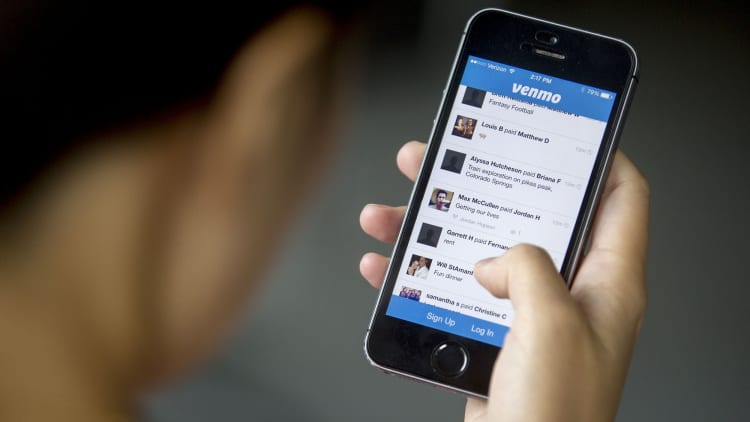In the age of digital banking, financial data now stretches way beyond traditional banks.
Consumers can quickly move their money or invest through financial technology apps, or so-called fintech apps like Venmo and Robinhood. To do that, they needed access to data. That's where Plaid comes in.
The San Francisco-based start-up, founded by two former Bain consultants, connects bank accounts to thousands of apps and helps consumers develop a complete picture of their financial data. The company, valued at $2.7 billion, has attracted investments from the venture arms of Goldman Sachs, Citi, Google and American Express.
Plaid says it now integrates with roughly a quarter of U.S. bank accounts. Despite popularity with coders, the average person interacting with Plaid most likely wouldn't recognize the company. It quietly powers the majority of fintech apps in the U.S., and has expanded overseas.
Because Plaid allows consumers to easily link bank accounts and banks have largely complied, the debate about accessing consumer bank data hasn't heated up as it did in Europe. So-called open-banking laws now require banks to make it easier to export your data and pick up and move to a new bank. Advocates say it gives nonbanking start-ups the chance to compete with traditional banks and gives consumers more options for financial products and services. Watch the video to learn more about who owns your banking data.




